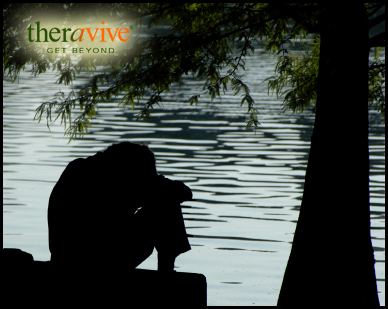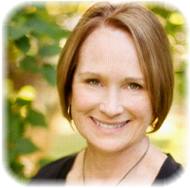
“No one ever told me that grief felt so like fear. I am not afraid, but the sensation is like being afraid. The same fluttering in the stomach, the same restlessness, the yawning. I keep on swallowing… Perhaps more strictly, like suspense. Or like waiting: just hanging about waiting for something to happen. It gives life a permanently provisional feeling.” C.S. Lewis
Grief is a normal and natural response to loss. It usually manifests as a compilation of sensations, thoughts and feelings. It can begin with shock, numbness, sadness, rage, confusion, – a surreal feeling. Thoughts of blame or disbelief; body sensations of pain, paralysis, tightness, changes in appetite and sleep often occur. All of this can shift and change rapidly resulting in a roller coaster ride of ups and downs and violent sideway twists. The overwhelming ride is made worse when experienced against the backdrop of a society that allows no space or time for grieving. The common advice is to keep busy, be strong and move on. There is also a myth that time will heal grief. Although there is some lessening of pain over time, most workers in the grief field would agree that time in and of itself is not really enough.
"Grief Heals When It Is Expressed"
Alan Wolfelt, in his book Understanding Your Grief, tells us that grief heals when it is expressed. He calls this expression mourning. In another Wolfelt book, Healing Your Grieving Heart, he describes one hundred practical ideas for understanding and expressing your grief. To be bereaved is to be torn apart according to Wolfelt and he describes the needs or essential elements of mourning that can contribute to healing and reconstruction. During this confusing and disorienting time it can be tempting to withdraw and spend time alone. Although some solitude can be helpful, isolation is not a healthy place to grieve. Wolfelt describes a “companioning” philosophy and suggests that it is preferable to trying to go it alone. Doug Manning in his book, The Power of Presence, describes a similar concept of “companioning” people through their journey of grief. He describes this as the ability to “be with” a grieving person in pain, without trying to “fix” it, or take the pain away. In Meaning Reconstruction and the Experience of Loss, Robert Neimeyer suggests that the desire to “make sense” and “find meaning” in the context of loss is often a central theme of grief.
The pain of loss when someone passes away at the end of a long, happy and productive life is hard enough but dealing with loss under other circumstances can be much harder. Loss due to accident or suicide adds a dimension of trauma and shock, which can delay the onset of mourning. When that unexpected and traumatic loss is a result of homicide there are even more obstacles to healing. The media in all its forms is often intrusive, insensitive and relentless. The justice system, moving as it does, at glacial speed can block any sense of resolution for years. Sometimes the worst part is that nobody can really understand or relate to how you feel, unless they have been through something similar themselves or worked with people who have.
Significance
Doug Manning states that the most important word in grieving is “significance”. He believes that it becomes the major driving force in the lives of those who grieve. He quotes a woman attending the murder trial of her daughter.

The whole trial hurt because it was about the guy who killed my daughter, and no one saw how significant she was. The defense tried to make everyone feel sorry for the guy, but no one stood up for my daughter. That hurt most of all.
The BC Victims of Homicide (BCVOH) is an initiative of the British Columbia Bereavement Helpline that aims to support people who have survived loss due to homicide. It’s founder, Christopher Ducharme is a survivor of homicide loss himself.
Their mission statement is:
"To provide knowledge and tools to victims of crime in order to support their grief and help them navigate the complexities of the criminal justice system. To provide guidance on how to deal with frequent inquiries from the media and the public. To validate the needs and feelings of victims by offering concern, compassion and acknowledgement in the safety of our groups, which we believe to be a crucial step towards their recovery. By encouraging participation, we hope the intensity of their grief is alleviated. Along with this, we invite all victims to participate in programs to raise public awareness about this significant issue."
They are supporting an 8-week support group for people in the Okanagan who are living with homicide loss beginning Wednesday Oct 1, 2014.
Mary Ellen McNaughton is a bereavement counselor on contract with the Central Okanagan Hospice Association and a facilitator for this eight-week support group maryellenmc@gmail.com
About the Author
 Mary Ellen McNaughton, MEd. CCC
Mary Ellen McNaughton, MEd. CCCMy focus is the communication we have with ourselves. As we learn to speak to ourselves with more understanding and compassion, that translates out into our relationships and our lives. I provide a safe and supportive space to express and be heard. Marshal Rosenberg's communication model (NVC) provides a foundation and tools to enhance emotional well being. I've also completed an externship in Emotionally Focused Therapy (or EFT) with Vancouver Couple and Family Institute.
Office Location:
375-1855 Kirschner Rd
Kelowna, British Columbia
V1Y 4N7
Canada
Phone: 250-864-8664
Contact Mary Ellen McNaughton
Mary Ellen McNaughton has a clinical practice in Kelowna, BC
Professional Website:
maryellenmcnaughton.com